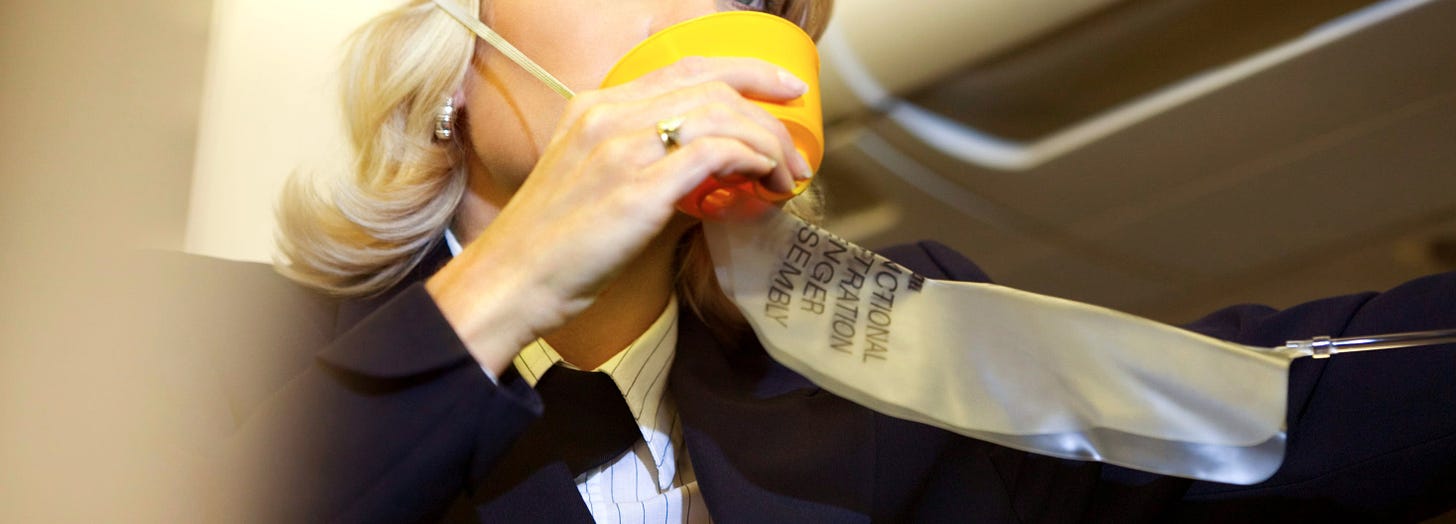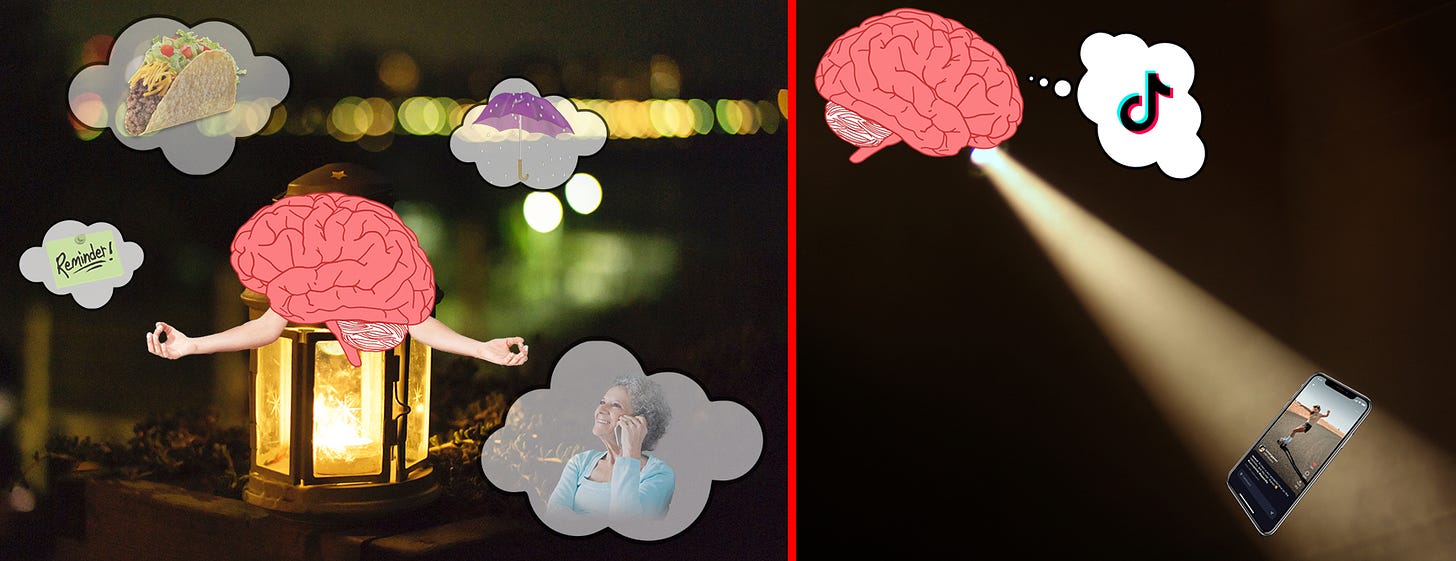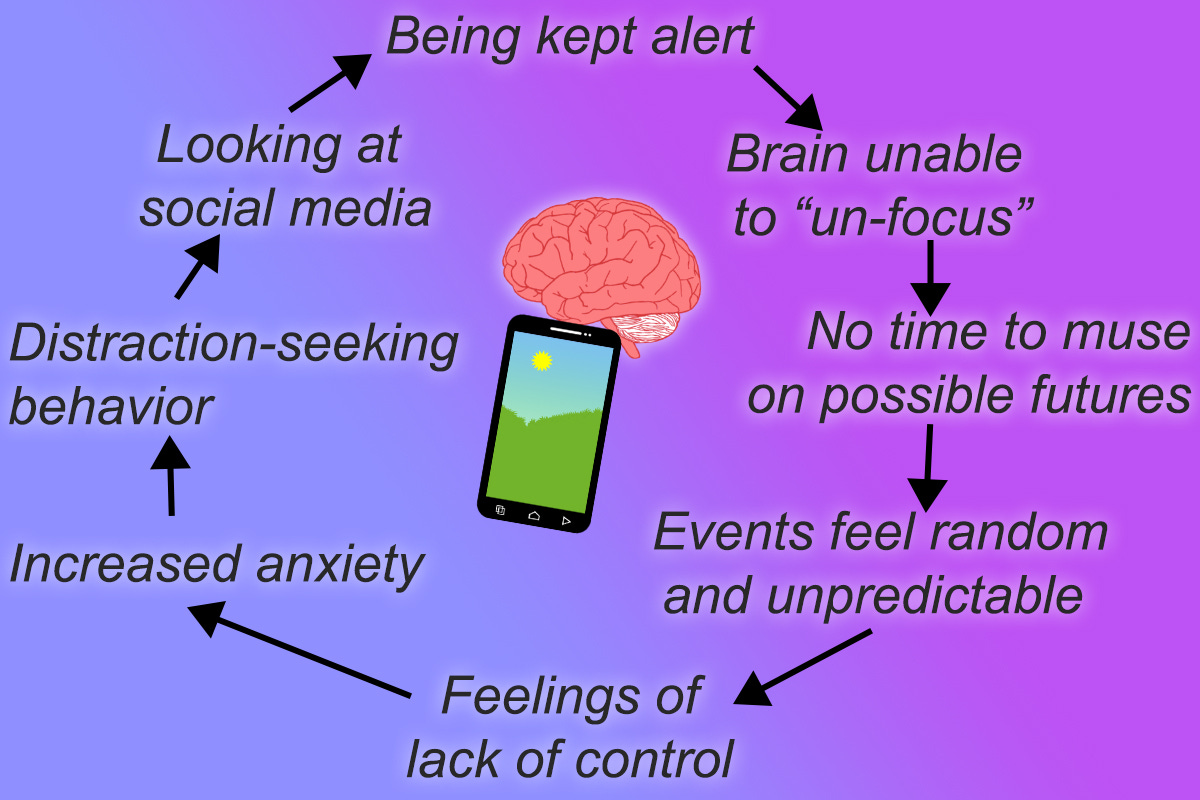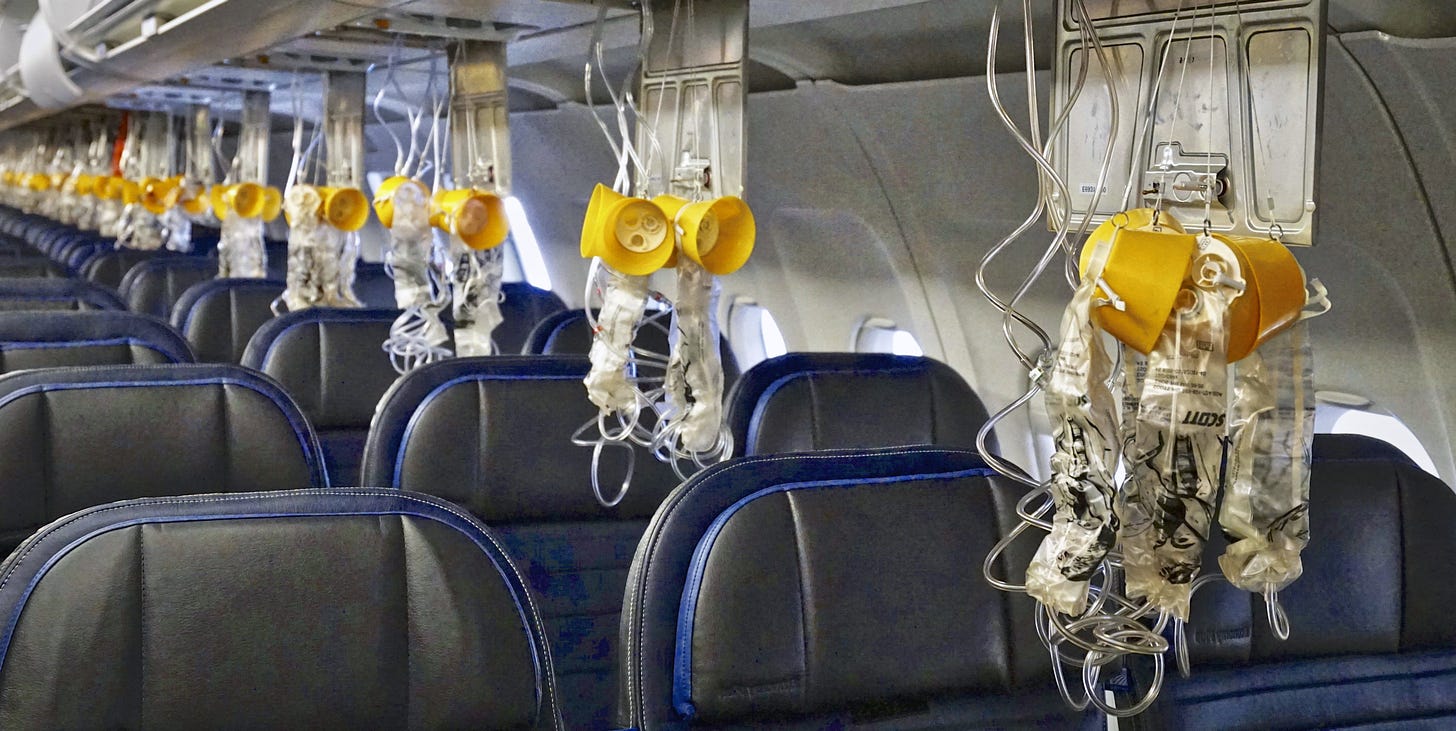What good are you to the world if you're always at capacity?
A civic-minded argument for limiting social media time
Note: This essay talks about the brain. Please know that these are metaphors used to describe the experience of owning a brain, not a scientific description of brain function. I have no fucking clue how the brain works, and you should be cautious of anyone who claims to.
The desire to alleviate boredom can be intense (until it’s not), but our brains and bodies need time to refresh and clear out the garbage. It’s non-negotiable. Unlike computers that can go into standby when there’s nothing to do, our brains are incapable of fully shutting off. It’s always focusing on something, and if there’s nothing in the world to focus on, it makes stuff up. This made-up stuff can be purely creative or artistic endeavors, but nine times out of ten, the brain is using its “idle processing power” to predict possible scenarios that might arise in the future.
That way, when scenarios do arise, part of you is ready for it, and it doesn’t feel like life is coming at you from all directions at a million miles an hour.
I’m not even talking about big, scary things like “my house might burn down” or “We need enough food stores for winter”, but simple, everyday tasks like “I could make tacos for dinner” or “My partner had a hard day and might need extra support”. If you get home and your partner is in a bad mood and you’re not ready for it, it’s easy to feel like it’s a burden. “Why is this happening to me?" you might ask, having not paused earlier to consider it was coming, and allowed yourself to empathize.
Our brains evolved from an information-sparse environment, where much of the time there was little that required pressing, immediate, focused attention and so most our time was spent in that “planning possible scenarios” mindset, a “lantern-conscious“ way of thinking that runs multiple operations in parallel (as opposed focusing on one at a time). But the “spotlight mind” will always take over if something piques it’s interest, which- could be a charging tiger, but could also be pretty much anything happening at all.
The modern news cycle, as usually experienced through social media (not to mention the twenty-four hour news networks) hijacks this natural brain function and prevents our minds from musing on possible futures, and thus holds us perpetually in the present. I mean “news” in a broad sense, both the big, breaking news stories from around the world; but also the “news” from friends and families that lives on social media, usually only a phone-unlock away. The bar for what your focused mind considers interesting is astonishingly low, and in today’s information-soaked environment there is no shortage of things “interesting” (or worrying) enough to grab your focus.
Note: When I say “forced to be in the present” I am not talking about the mindfulness practice of “being present”. “Being present” describes a method to allow your mind to “unfocus”, often by focusing on something mundane (like breathing). Being “forcibly held in the present” by the internet and social media is akin to putting blinders over the part of your mind that reconciles past experiences and explores possible futures, and it points your mind’s spotlight only to what’s right in front of you. Sometimes that thing is a charging tiger, but in today’s society it’s usually just social media feed.
Even just knowing that there is an app with “news” on it in your pocket can make it very hard to not want to know what the news is. Willpower can only last so long. If you’re reading this, you are probably aware of the cycle this puts you in: being forced to forever focus on the present prevents your mind from “un-focusing”, which prevents it from musing on possible futures, which makes events feel like they’re coming at you fast and from all directions, which causes feelings of lack of control, which increases anxiety, which encourages anxiety-reducing behaviors like… seeking distraction.
Following “the news” is certainly important to a healthy civil society, and keeping up with your family is important too. But even the biggest breaking news story is almost certainly irrelevant to what you may be doing at any particular moment. And if in that particular moment you are doing “nothing”, you’ll be taken out of it, held in the present, and unable to mentally prepare yourself for what’s coming.
This causes a lot of issues, particularly for those with anxiety problems. But a question to ask yourself is “What good am I to the world, and the people I care about, if I’m on edge all the time?” Now you personally probably aren’t being distracted from discovering a solution to climate change, or race relations in America. But you are being distracted from being present and patient with other human beings around you. And you are also being distracted from considering your own possible futures.
On airplanes, they always warn that in the event of an emergency, you should put on your oxygen mask before helping others. The message is: "We know you aren’t the pilot, but you are still useless to help anything get better if you’re struggling to breathe.” Carrying around a world of infinite distractions in your pocket -no matter how caring and well-intentioned of a person you are- is like trying to help your airplane seat-mates without having enough oxygen.
Will quitting social media totally break the cycle, cure your anxiety and save the world? No. Modern society and the twenty-four hour news cycle is already bad enough when it comes to grabbing and holding your focus, but social media takes it to another algorithmically-enhanced level that’s significantly harder to resist and break free of. Social media does more than provide endless distracting content; it’s presenting it in such a way as to maximize the time you spend focused on it. It’s notifying you when you aren’t using it. It’s trying to convince you that it can make your friendships “official” and that it can automate your interpersonal relationships.
Revoking (or limiting) access of these algorithms to your inner life won’t directly “land the airplane”, but it will put you in a position to be as helpful as you can be if a situation arises. And, as you’re probably aware, many very important situations both locally and worldwide already exist. How helpful are you able to be?







